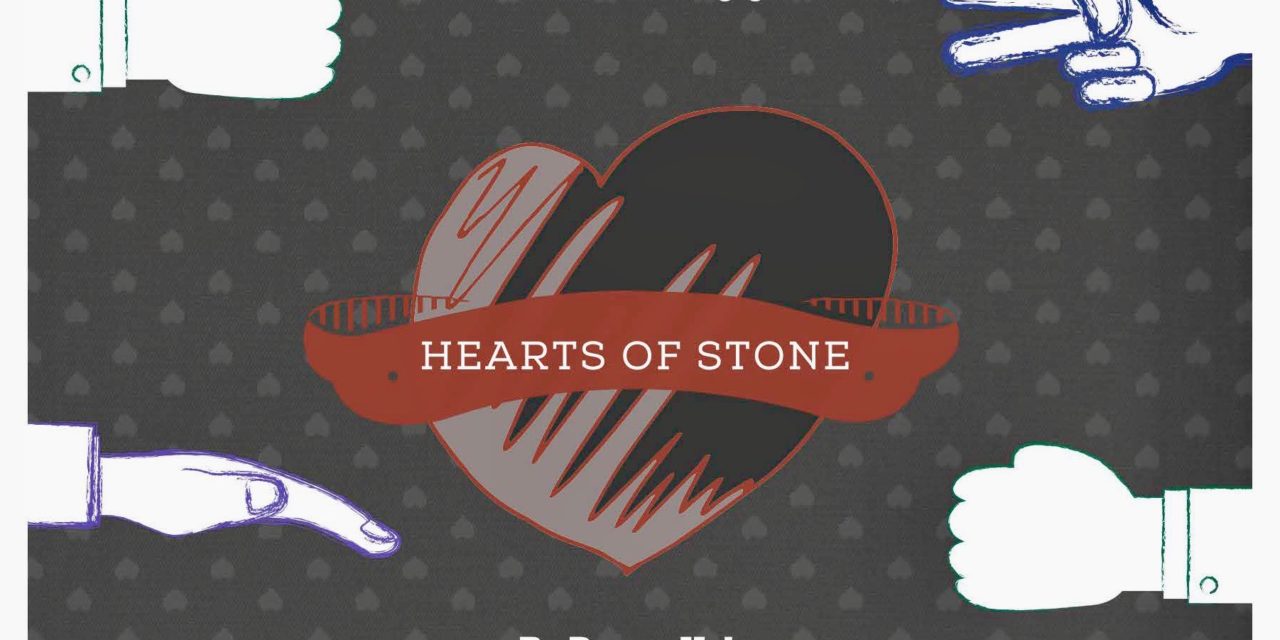By Randi Bjornstad
She would never have chosen for it to happen this way, and Willow Jade Norton is keenly aware that if it weren’t for the continuing coronavirus pandemic, she would not be directing a virtual production of Hearts of Stone, a new play by highly regarded playwright Donna Hoke.
The play was originally slated to be performed live on stage by Arts at the Palace (aka AATP) in Hamilton, N.Y., as part of the organization’s annual summer “From Script to Stage” play development program.

Eugene director Willow Jade Norton got the nod to create a virtual performance of Hearts of Stone by playwright Donna Hoke; photo by Randi Bjornstad
“But then the pandemic hit, and it became obvious that it would not be possible for the program to go on as planned and for AATP to do the play live,” Eugene director/teacher/arts administrator Norton said, and that’s when fate took a twist or two in her favor.
“Because of my directing experience, I had met a person from a group called the Women’s Theatre Festival (aka WTF) last fall, and I was asked to be on a panel they were doing regarding changing patriarchy in theater,” she said. “It turns out that Donna Hoke knew them, too, and she knew that WTF was doing a lot of pioneering work on virtual storytelling, so she got AATP and WTF together to work on her project.”
From there it all fell together neatly.
For their part, the people at WTF “knew that I am really big on how to do plays virtually,” Norton said, and for her part, “I read the play, did some research, and I was really inspired about what Donna Hoke has done with Hearts of Stone and really wanted to be involved with it.”
The premise is both macabre and historical.
Here’s how playwright Hoke describes her creation, in a piece previously published in Broadway World, online at broadwayworld.com:
“Hearts of Stone is one of those rare plays that springs to mind as a fully formed idea, which isn’t to say it immediately became a fully formed play,” Hoke told Broadway World. “I’d read an article about Willard Psychiatric Center, in Ovid, New York, where thousands of inmates had been buried anonymously on the grounds of the institution, and a woman was being stonewalled by the state as she tried to get the names released to the families.”
From that moment, “I envisioned a woman ‘visited’ by these former patients,” the playwright said. “As she becomes more and more involved with these voices and visions, her husband becomes more and more fearful she’s losing her sanity. Because she’s experiencing something deemed different, her mental fitness is questioned, which seemed an apt parallel to institutional inmates of the fifties, many of whom were committed for things that today we recognize as acceptable differences, like homosexuality, autism, depression, and deafness.”
Norton said she also found the concept behind the Hearts of Stone project immediately captivating.
“I read the play, and I did some research, and I was really inspired by the idea,” she said. “I fell in love with the lead character and her husband, and their relationship. And I was appalled to learn that this is something that really happened in real life, that there were thousands of people all over this country who were institutionalized and died there and were buried and all but forgotten.”
She couldn’t put the script down. “I even cried at one point,” Norton recalled. “And it made me realize how many people for decades who didn’t ‘fit’ in society — gay people, people with mental health issues, people with disabilities — who were treated that way, and in some ways still are. It made me really think about what society’s — and my own — values really are. I really wanted to direct this play.”
The problem, of course, was that theaters all over the country, from Broadway to local communities, have been dark for months because of the worldwide coronavirus pandemic, so doing a virtual production was the only way to accomplish the project.
Fortunately, Norton was familiar with OBS — Operating Broadcast Software — which has been designed to upload multiple Zoom feeds and through further programming meld them into one cohesive screen.
“That capability is how we can use four actors who don’t live anywhere near each other — they come from Detroit, Buffalo, New York City, and Kentucky,” Norton said. “So each one has to be photographed doing the acting in their own location, and then their positions and actions have to be choreographed so they fit together on the full screen.”
Every time a scene changes — and it well over 100 times in Hearts of Stone, she said — “I had to make a specific note about where each of the actors in the scene would be. For example, I would tell one actor, in this scene you will be on the upper right side of the full screen, and you will be talking to this other actor, so you will need to be looking down to the lower left where the other person will be.”
The choreography is so complex that only a couple of theaters are using it at this point, Norton said, but she relished the challenge. And it also helped that Hoke’s stage directions were so specific that “it was easy to envision the way the scenes needed to look,” she said.
“When you block a normal play that’s onstage, it usually can two to three days to iron out where people should be in each scene, but doing this virtually has taken me two to three weeks to do,” Norton said. “And you have to be careful, because the use of the technology has to be so good that people who are watching online aren’t being pulled away from the story, which is the most important part, by the technology that’s being used to present it.”
An additional challenge was creating scenes for multiple actors that would work together, even though in reality they were hundreds of miles apart.
“For example, in one scene, we needed to have several people together, but that meant they had to be in their own places but look as if they were in the same place,” she recalled. “Luckily, three people happened to have rooms with wood paneling — I was so excited.”
In another scene, “I was literally mailing them the same wallpaper to make it work,” she said.
The cast and Norton, from their far-flung places, will put the final streaming together in several three-hour sessions before Hearts of Stone takes to its virtual stage the afternoons of July 24 and 25.
“I realize that without the pandemic, I wouldn’t be the director of this show,” Norton said. “But as it is, little old me in Oregon gets to do this. I couldn’t be more honored or thrilled.”
Hearts of Stone
When: 4:30 p.m. (PDT) on Friday, July 24; and 12:30 p.m. (PDT) on Saturday, July 25
Where: Online at Twitch.TV/wtheatrefestival.nc
Cost: Based on ability to pay, but donations of $10 to Paypal.me/wtfestivalnc
with “Hearts of Stone” in the memo line are greatly appreciated
More about Willow Jade Norton: willow-norton.squarespace.com

Above: A screenshot from Hearts of Stone, a play by Donna Hoke that will be offered online on July 24-25; director Willow Norton used special software to create a “stage” for actors who perform together from their homes in Detroit, Buffalo, New York City, and somewhere in Kentucky.












